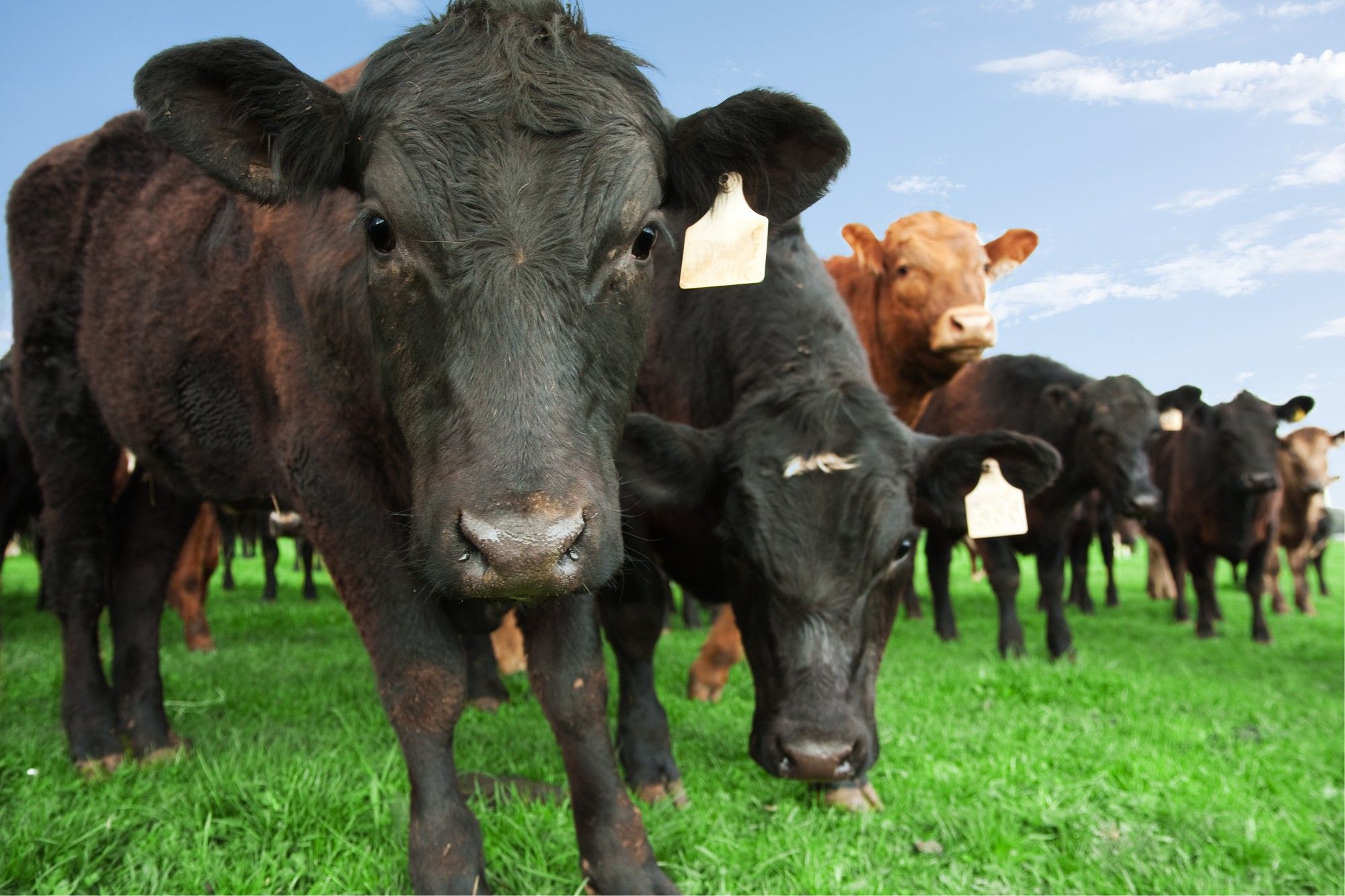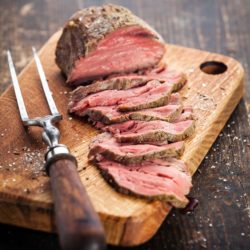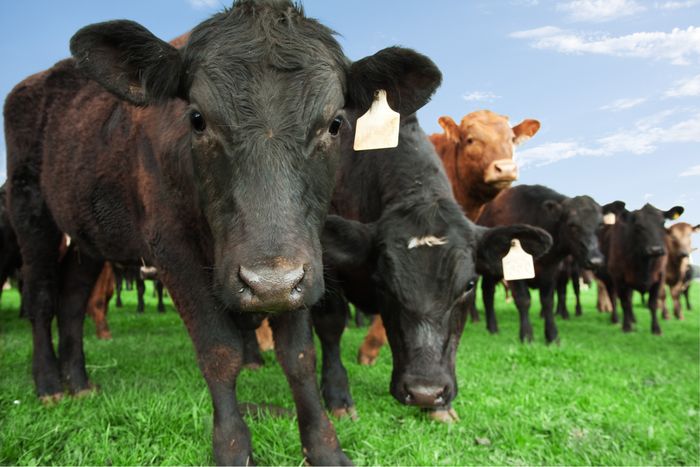What Grade of Beef Does Kroger Sell

A class action lawsuit alleges Albertson's and Kroger beef is deceptively labeled as a U.S. product when in many cases, it should be considered an import.
Kroger beef products were "derived from cattle that never drew a breath of American air much less were born here," Robin Thornton, the named plaintiff in the class action lawsuit, said.
"Since 2015, Defendants have breached consumer trust by advertising that some of their beef products are a 'Product of the U.S.' when in fact, the products are not derived from domestically originating cattle," Thornton added.
The class action lawsuit argues Albertson's and Kroger beef are deceptively labeled as being from the U.S. because the company wants to profit from current food trends.
Thornton says she and other consumers "in recent years … have grown more concerned about health, sustainability, and animal welfare, leading them to consider how their food is produced" and have become "reliant on domestically raised cattle in order to have confidence that the beef they are purchasing meets those concerns."
Thronton further adds that Kroger beef is "sold at prices above their true market value" because of this, and claims the grocer is being unjustly enriched as a result.
The class action lawsuit argues the Kroger beef products in question actually "are made from a mixture of domestically born and raised cattle … and imported beef … as well as imported live cattle."
The class action lawsuit says while "Defendants continue to conceal and suppress the true origination" of Kroger beef, figures show the U.S. imported an estimated $6.2 billion in beef annually since 2015.
Suppliers of Albertson's and Kroger beef, known as the Big 4, according to the complaint, are second only to the state of Texas when it comes to imported beef.
"Tyson, Cargil, JBS USA, and National Beef … now control 6.9 million cattle in the U.S. market," Thornton said, adding "neither Kansas nor Nebraska, which are the nation's second and third top cattle inventory states, even rival Defendants in domestic cattle inventory."
Since 2014, the class action lawsuit alleges Kroger beef suppliers import an estimated 3 billion pounds of beef and 1.9 million live cattle yearly.
 Thornton argues the defendants "support unknown, unqualified beef production practices, such as feedlot shipping across the oceans in an environmentally damaging fashion or such as the environmental devastation of deforestation of the Amazon Rain Forest for grazing witnessed in Brazil."
Thornton argues the defendants "support unknown, unqualified beef production practices, such as feedlot shipping across the oceans in an environmentally damaging fashion or such as the environmental devastation of deforestation of the Amazon Rain Forest for grazing witnessed in Brazil."
Under the Country Of Origin Labeling (COOL) law, beef imported post-slaughter or products derived from animals imported for immediate slaughter were required to be labeled with the originating country and could not be held out exclusively as "Product of the U.S.," the complaint argues, but was changed four years ago.
The U.S. Department of Agriculture issued a "final rule" that amended Country of Origin Labeling to exclude "muscle cuts of beef and pork, and ground beef and pork" in 2016.
"USDA is thus considered to be silent as to COOL regulations regarding beef and pork post 2015," Thornton claims, adding Kroger beef has been advertised as being a U.S. product ever since.
The promotion of Kroger beef as a U.S. made product wasn't limited to just the label either, Thornton says.
Advertisements were sent to "consumers in their homes and businesses" with words like "product of the United States" and "USDA choice" but no "accurate representation of country of origin."
The lawsuit further alleges unjust enrichment by charging a higher price for Kroger beef from the U.S.
"Defendants have profited enormously to the detriment of consumers and domestic producers from its falsely marketed" Kroger beef, Thornton said.
Thornton seeks to represent two Classes in this lawsuit: all consumers who've bought Kroger beef products in the U.S. and a separate subclass of consumers in New Mexico.
"Defendants made these false, misleading, and deceptive representations, and omitted the true information that would counter them, knowing that consumers would rely upon the representations and omissions in purchasing" Kroger beef products, Thornton said.
Formally the class action lawsuit alleges that the makers of Albertson's and Kroger beef engaged in unfair practices, breach of warranty, and unjust enrichment. The plaintiffs are seeking an injunction to the labeling practice as well as damages and relief.
Have you purchased U.S. labeled beef from Kroger or Albertson's? Let us know in the comments below.
Counsel representing the plaintiffs in the Kroger Beef class action lawsuit are Blair Dunn, Jared R. Vander Dussen of Western Agriculture, Resource and Business Advocates, LLP and Marshall J. Ray of the Law Office Marshall J. Ray.
The Kroger Beef Class Action Lawsuit is Thornton, et al. v. The Kroger Company, et al., Case No. 1:20-cv-01040-JB-LF, in the U.S. District Court for the District of New Mexico.
We tell you about cash you can claim EVERY WEEK! Sign up for our free newsletter.
Please note: Top Class Actions is not a settlement administrator or law firm. Top Class Actions is a legal news source that reports on class action lawsuits, class action settlements, drug injury lawsuits and product liability lawsuits. Top Class Actions does not process claims and we cannot advise you on the status of any class action settlement claim. You must contact the settlement administrator or your attorney for any updates regarding your claim status, claim form or questions about when payments are expected to be mailed out.

Related Posts
montgomeryhicharrom.blogspot.com
Source: https://topclassactions.com/lawsuit-settlements/consumer-products/food/kroger-beef-imports-deceptively-sold-as-u-s-produced-class-action-lawsuit/
ارسال یک نظر for "What Grade of Beef Does Kroger Sell"